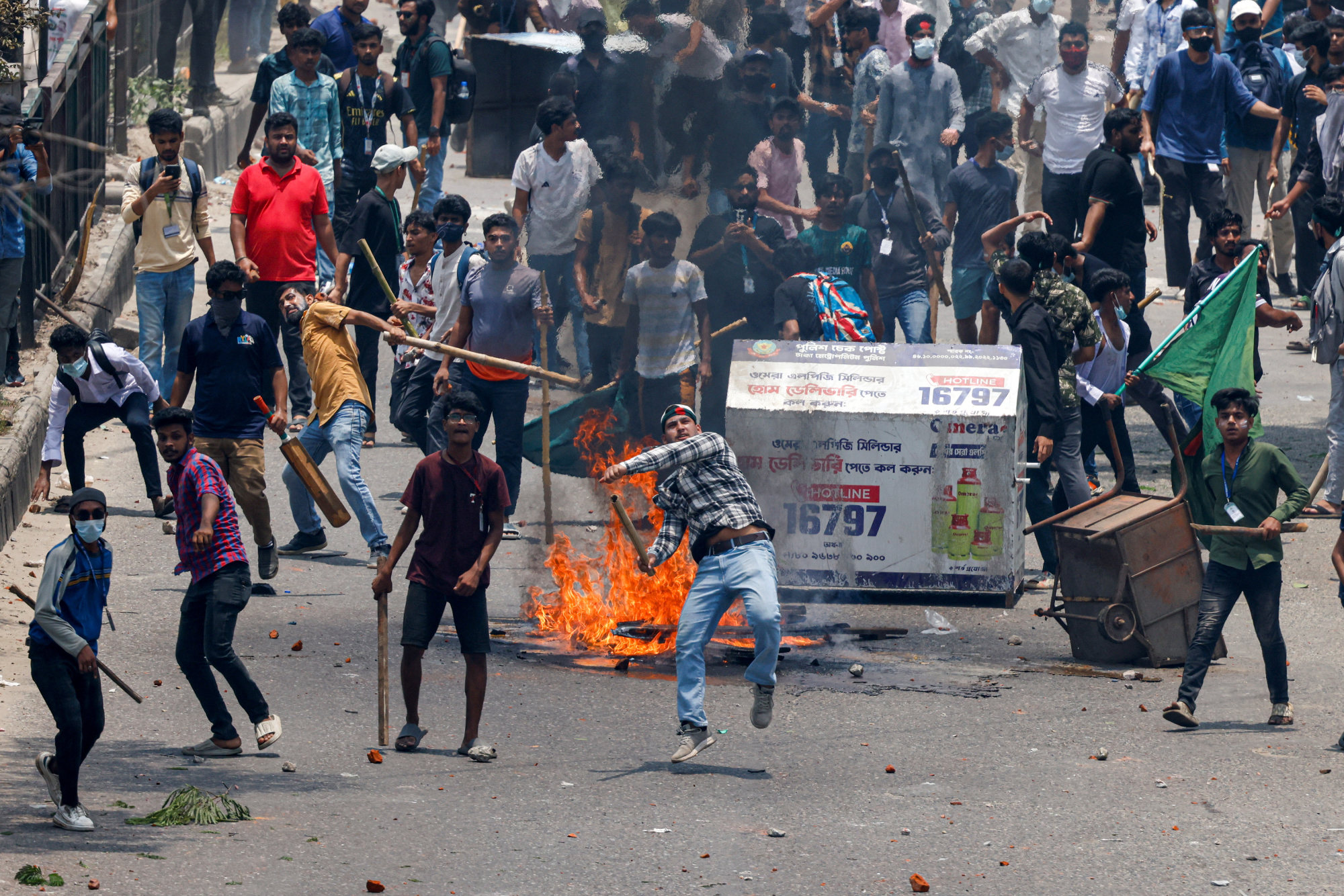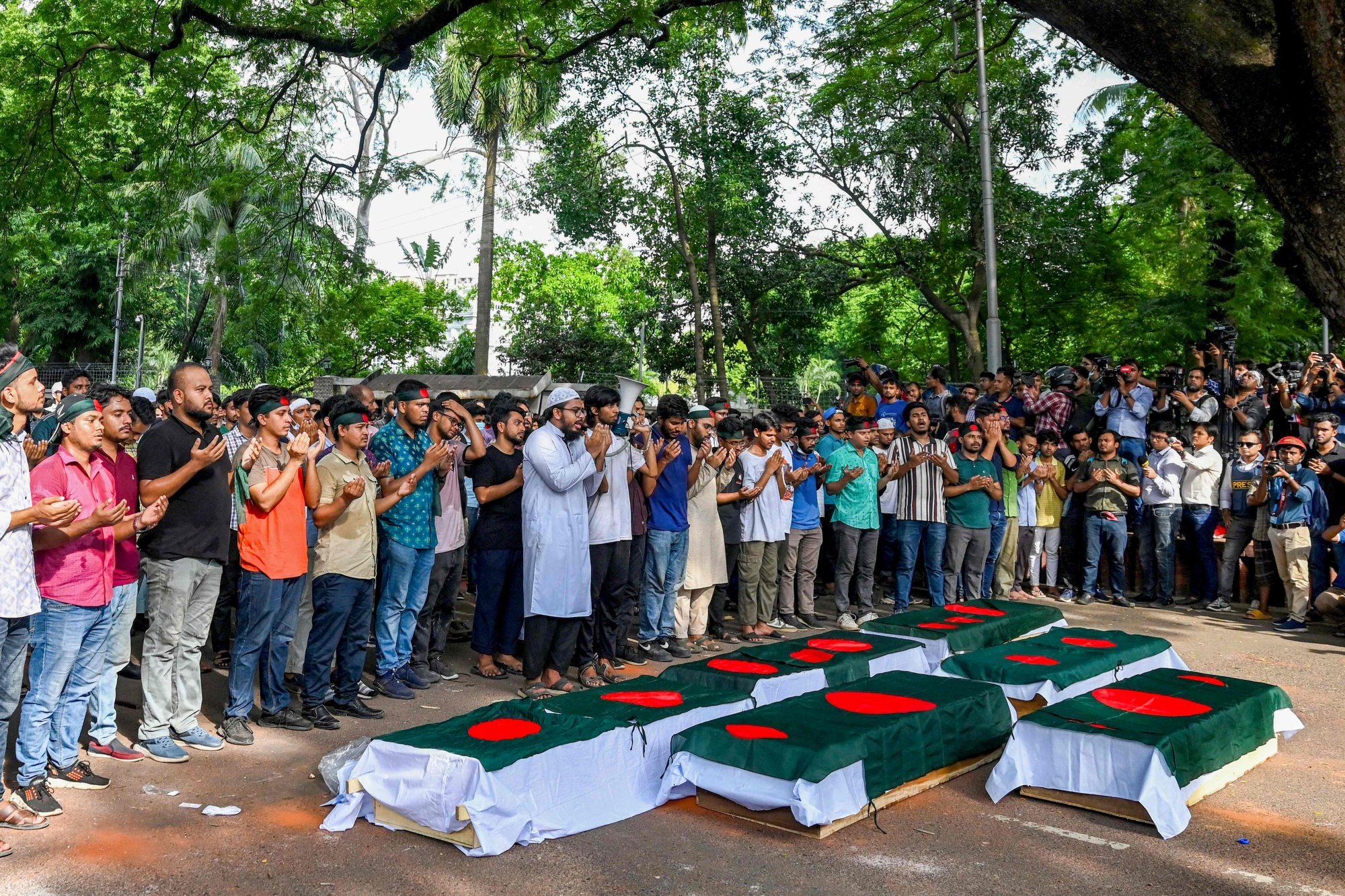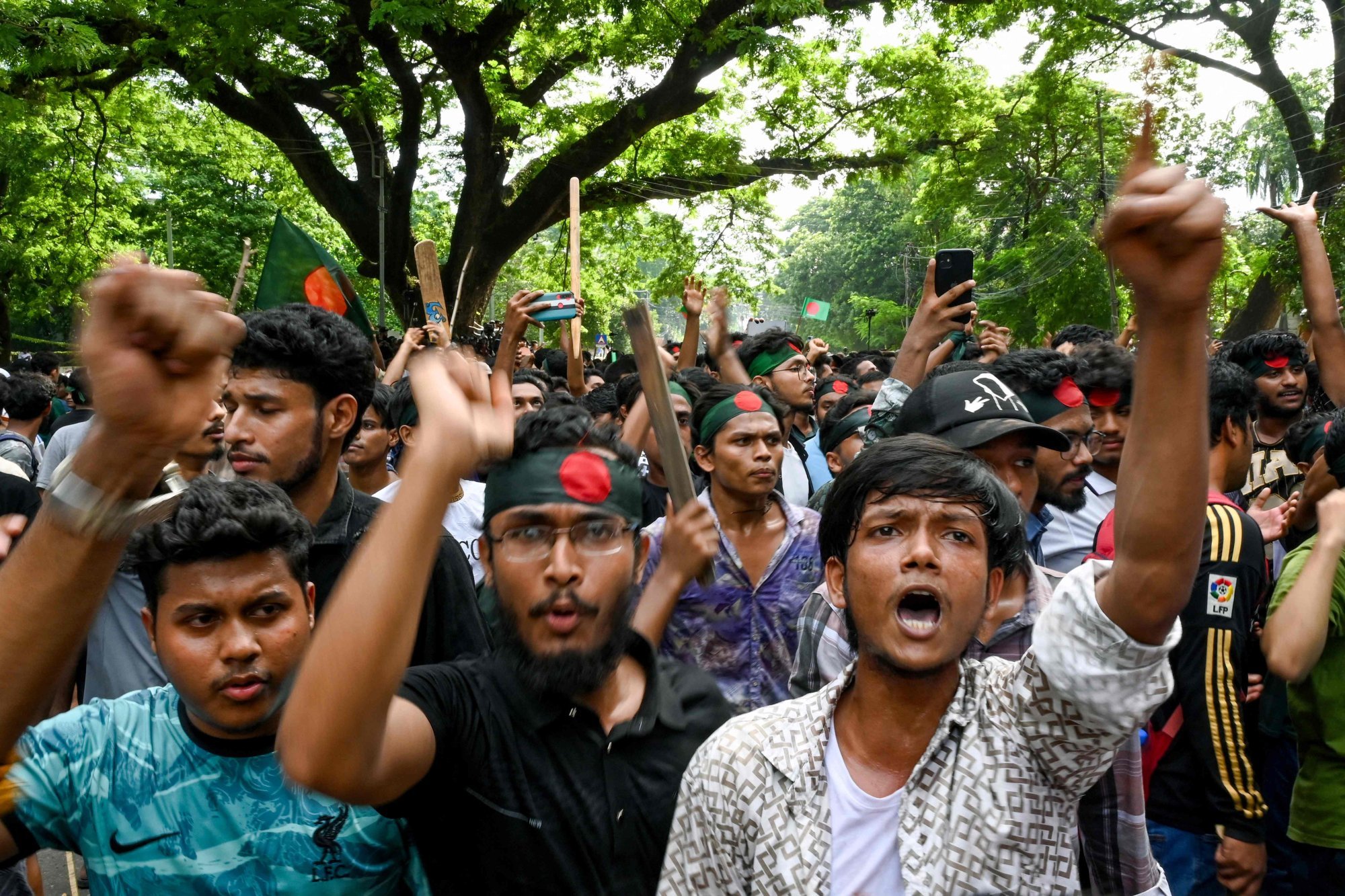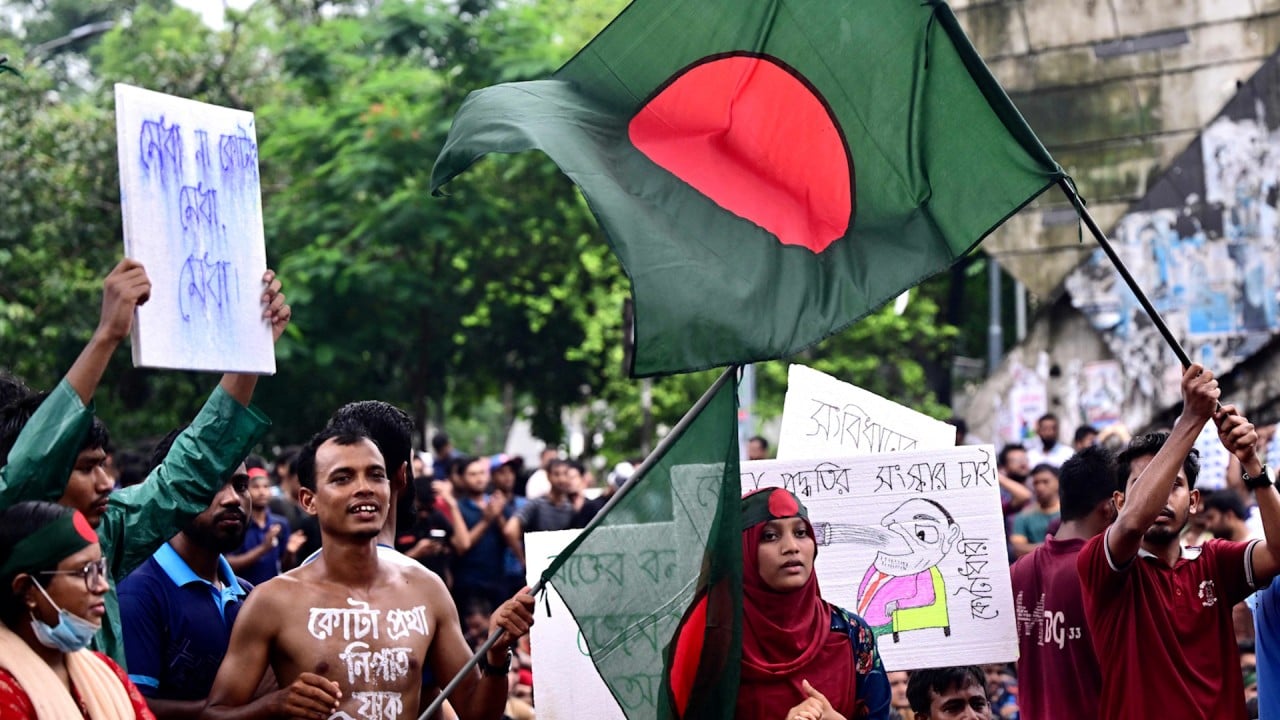Bangladesh student protests turn deadly as demonstrators bring nation to standstill
On Thursday, the protesters orchestrated a nationwide shutdown that effectively brought Bangladesh to a standstill, shutting down road networks and closing off businesses, as the authorities struggle to contain the protests.
For more than two weeks, university students have taken to the streets to demonstrate against the job quota policy, which reserves large percentages of civil service positions to descendants of “freedom fighters” – individuals who fought for the nation’s independence from Pakistan in 1971.
As the protests spread from major cities to smaller districts throughout the country, their intensity has escalated. Despite forceful interventions by the police and pro-government factions, particularly the Bangladesh Chhatra League (BCL) – the student wing of the ruling Awami League – the widespread participation in these protests has significantly disrupted daily life, bringing into sharp focus the challenges facing Bangladesh’s political landscape.
Escalating violence
On Wednesday, students at Dhaka University staged a “symbolic funeral” in accordance with Muslim rituals for their fallen peers, marching with empty coffins to honour the deceased and chanting “We will not let our brothers’ blood go in vain”.
However, the march quickly turned chaotic after police attempted to disperse the students with rubber bullets, tear gas, and stun grenades, resulting in injuries among a number of protesters.
“Police attacked us with tear gas and stun grenades just when we had started our march peacefully,” one protester told This Week In Asia. “There was no need for violence, this is our campus, and we were marching well within our rights, but they unleashed hell on us.”

Tuesday marked the deadliest day of the demonstrations, with six people killed in clashes between BCL members, police and protesters.
Local media and police reports indicate that the casualties were widespread, with three victims in the southern port city of Chittagong – located over 300km from the capital of Dhaka. Another two people were killed in Dhaka itself, and one more in the northern district of Rangpur.
Amnesty International condemned the Bangladeshi authorities for using “unlawful force against student protesters” and failing to ensure their protection during the ongoing protest across the country, it said in a statement on Wednesday.
UN Secretary-General Antonio Guterres and the US State Department have also made statements condemning the violence against the demonstrators and calling on the Bangladesh government to uphold their right to peacefully protest.
Wider political consequences
Zahed Ur Rahman, a political analyst based in Dhaka, told This Week In Asia that anger over the job quota system has been magnified by the dire economic straits many in the country are facing.
“With jobs dwindling, inflation soaring and the government ensuring uneven salary hikes and benefits to maintain control over civil administration, government positions have become a prime target for many students. But the realisation that these jobs are predominantly going to quota holders and ruling party supporters has spurred widespread outcry,” Rahman said.

“Every year, tens of thousands of students graduate from universities, yet government job openings have always been limited. Previously, many found opportunities in the private sector, but this avenue has suffered over the last decade due to policy failures by the undemocratic government,” he added.
Authorities in Bangladesh have temporarily closed most government-run educational institutions, including prominent universities, in response to the escalating protests.
Unreserved anger
The quota system for civil servants was initially introduced in 1972 by the country’s founding father, Sheikh Mujibur Rahman, as a means of honouring and providing for those who contributed to the nation’s battle for independence.
The policy was abolished following similar widespread protests in 2018, but were reinstated under a recent court order, sparking the current demonstrations.
Under the reinstated system, 30 per cent of government positions are allocated specifically to the descendants of freedom fighters. There are also percentages reserved for other communities, such as women and minority groups, leaving only 44 per cent of positions available to the general pool of applicants.

Alam, an international relations student at Dhaka University who asked to be identified by only his first name, said that on top of the official job quotas, there are also “unofficial quotas” reserved for pro-government activists and their relatives.
He told This Week in Asia that while the affluent in Bangladesh have alternatives, diminishing opportunities in the private sector have left students from lower and lower-middle class backgrounds with no viable options.
“Quota holders secure jobs, the rich people go abroad, and I, hailing from a family of farmers, find myself cornered with limited options. After four years, a university degree turns merely into a piece of paper for many of us,” Alam said.
“Merit-based recruitment is our right, and we are fighting for our just rights.”
